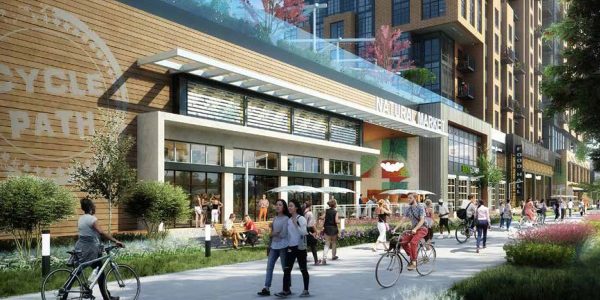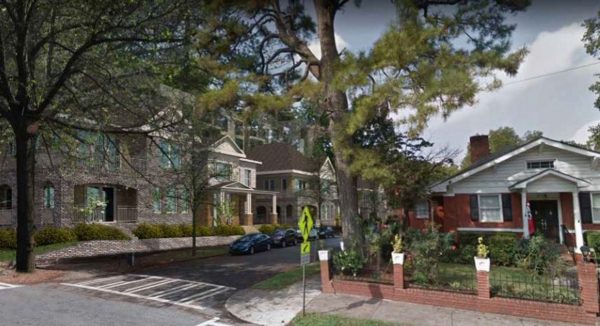In Aftermath Of Atlanta’s Canceled 10th & Monroe Development, Calls For Reform

Plans were modified for a proposed Atlanta development at 10th Street and Monroe Drive. Things were set to move forward until the city canceled the project suddenly this month.
Fuqua Acquisitions II, LLC
Last December, the city of Atlanta agreed to sell a piece of land along the BeltLine, near the intersection of 10th Street and Monroe Drive. The developers, Fuqua Acquisitions II, LLC, originally had planned an 11-story hotel, grocery store and 745 parking spots.
That prompted a neighborhood uproar.
Then, the city suddenly killed the deal this month. The events have prompted calls for reform of the city’s real estate sales process.
A lot of people complained about this development: about more traffic at an already busy intersection and about rezoning houses to make way for a high-rise.
One of the developers, Jim Kegley, said he and his partners, including Fuqua Development, still don’t understand why the deal ended.
“Everything that the BeltLine and the city have espoused to be about — affordability, density, transit, walkability — our project tried to speak to that,” he said.

In a statement, the BeltLine — which officially terminated the sale — said, “We have determined that the process itself is not yielding a result that we feel is appropriate for that site, and we plan to re-evaluate at a later date.”
Regardless, Kegley said he worries it sets a precedent.
“The piece that would make me nervous, and it should make a lot of folks nervous, is if neighborhood associations are allowed to legislate city policy. Now, did that happen? We don’t know. But certainly, we know there was a lot of influence being passed around, if you will, and pressure put on a lot of political folks.”
Council member Jennifer Ide said she has always had issues with the project’s scale, even after the developers modified plans to accommodate community complaints. Kegley said the latest plans featured no hotel, six single-family homes and about 600 parking spots.
But the real problem, in Ide’s opinion? The process. It’s something she wants the City Council to fix.
Right now, she said, there’s little opportunity for public input until after the winning development has been chosen.
“They need to find an appropriate place for some input up front, both for the neighborhood and City Planning to express what they think really works there.”
She said that step would have avoided some of the conflict surrounding this project and called it a “lesson learned.”
Jenifer Keenan is a board member for the Virginia-Highland Civic Association, which was vocally opposed to the project. She said her group hopes to partner with Ide on this mission.
“When they solicit proposed developments, those proposed developments should be consistent with all the prior planning that’s already happened, and that was not the case here,” she said.
Julian Bene was outvoted in December, as one of the few Invest Atlanta board votes against the sale. He thinks the Invest Atlanta board should see it beforehand, too.
“It became clear to me that the board should review and approve the terms of an RFP [request for proposals] before the RFP is put out there,” he said.
“Because the way this one happened, we just get in at the very, very end.”
Both Bene and Ide say they’re committed to finding ways to make change happen, whether it’s through City Council action requiring consultation of neighborhoods and the Department of City Planning or a new policy at Invest Atlanta.









